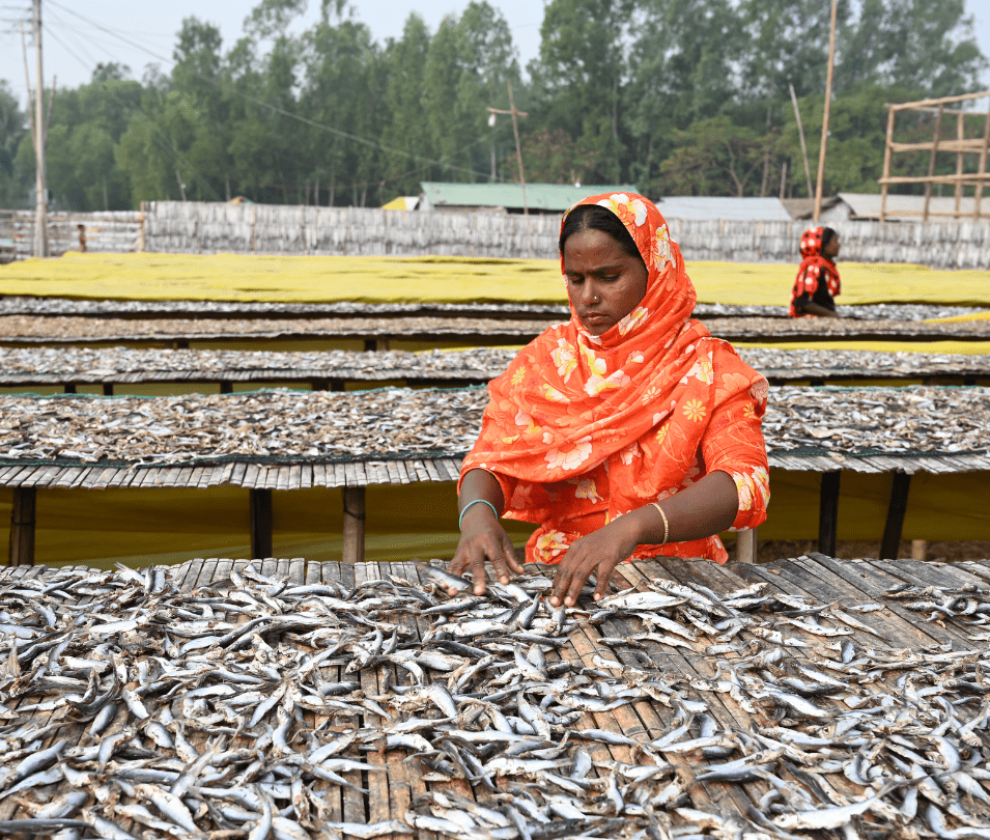Today is World Maritime Day, A day which is celebrated globally, recognizing the vital role of the maritime industry in global trade and sustainability. Bangladesh, with its extensive coastline along the Bay of Bengal and navigable rivers, has a strong connection to this day.
For Bangladesh, a nation blessed with a vast coastal area and an intricate network of rivers, the maritime sector is more than just a source of income; it’s a lifeline to progress. In this article, we explore Bangladesh’s maritime potential, its current state, the challenges it faces in becoming a green shipping industry, and global case studies from developing economies that have harnessed their maritime prowess for sustainable growth.
Current Scenario of Bangladesh’s Maritime Industry
In recent years, Bangladesh has made significant strides in developing its maritime industry. The country’s ports, including Chittagong and Mongla, have seen substantial upgrades to accommodate larger vessels and handle growing cargo volumes. Chittagong, for instance, is one of the busiest ports in South Asia.
Bangladesh is currently responsible for more than a third of the world’s ship recycling activities, however the nation experienced a significant drop from 8.02 million tonnes in the preceding year to 2.8 million tonnes in the twelve-month period leading up to January 2023.
According to the “Review of Maritime Transport 2023” report, Bangladesh recycled various types of ships, with oil tankers accounting for 50.4%, bulk carriers for 41%, ferries and passenger ships for 2%, chemical tankers for 1.9%, and general cargo ships for 1.1% of the total.
Challenges of Transforming into a Green Maritime Industry
A “green yard” signifies a yard that adheres to the International Maritime Organisation (IMO) Guidelines for Safe and Environmentally Sound Ship Recycling under the Hong Kong Convention (HKC). In the country, there are approximately 150 ship-breaking yards, but the majority of them remain hesitant to transition into eco-friendly facilities because of the substantial expenses associated with this transformation.
India, China, and Turkey have successfully transitioned their ship recycling facilities to meet the requirements set forth by the Hong Kong International Convention, which was adopted in 2009.
Shipyards embracing eco-friendly practices have the potential to not only set themselves apart from competitors who fail to meet environmental standards but also tap into lucrative markets that prioritize sustainability, thereby increasing their profitability.
Nevertheless, the financial commitment required to transform a shipbreaking yard into an environmentally conscious facility is substantial, with estimates from the Bangladesh Ship Breakers Association placing it at more than Tk30 crore. This presents one of several significant hurdles in this endeavor.
Transitioning to green shipping practices presents several challenges, including:
- Investment in Green Technologies: Retrofitting or building new ships with eco-friendly technologies can be costly. Bangladesh needs to invest in cleaner propulsion systems, exhaust gas cleaning systems, and energy-efficient designs.
- Infrastructure Development: To support green shipping, Bangladesh must enhance its infrastructure, including the development of cleaner fuel supply chains and the installation of shoreside power facilities at ports.
- Regulatory Compliance: Meeting international environmental standards and regulations poses a challenge. Ensuring vessels adhere to emission control areas and international conventions demands rigorous enforcement.
Global Case Stories: Asian Peers Leading the Way
Asian countries continue to lead in cargo handling performance. According to the Container Port Performance Index (CPPI), jointly produced by the World Bank and S&P Global Market Intelligence, 18 of the top 25 ports globally are in Asia, including 11 in Eastern Asia and four in Western Asia.
Several developing economies have successfully harnessed their maritime potential, promoting sustainable green shipping, maritime security, and marine environmental preservation. Let’s look at a few examples:
Hong Kong: Hong Kong has established itself as a global maritime hub. It encourages green practices by providing a technical standard to aid in the early implementation of safe and environmentally sound ship recycling. Responsible ship recycling yard operators have begun voluntary certification to ensure stringent safety standards and to support ongoing calls for Environment, Social, and Governance (ESG) reporting across the maritime industry.
Indonesia: As an archipelagic nation, Indonesia has prioritized maritime safety and security. It has been actively involved in regional cooperation to combat piracy and promote sustainable fishing practices.
Singapore: Singapore’s commitment to maritime excellence is well-known. It leads in implementing eco-friendly initiatives such as reducing port emissions and promoting clean energy adoption.
South Korea: South Korea has invested in research and development for green ship technologies. It aims to reduce greenhouse gas emissions and promote the use of alternative fuels in its maritime industry.
Bangladesh’s maritime potential is a resource waiting to be fully realized. With strategic investments, regulatory reforms, and inspiration from global examples, the nation can transform its maritime industry into a green, sustainable powerhouse. As we commemorate World Maritime Day, let us not only celebrate Bangladesh’s rich maritime heritage but also envision a future where it thrives as a leader in green shipping, maritime security, and marine environmental preservation.



